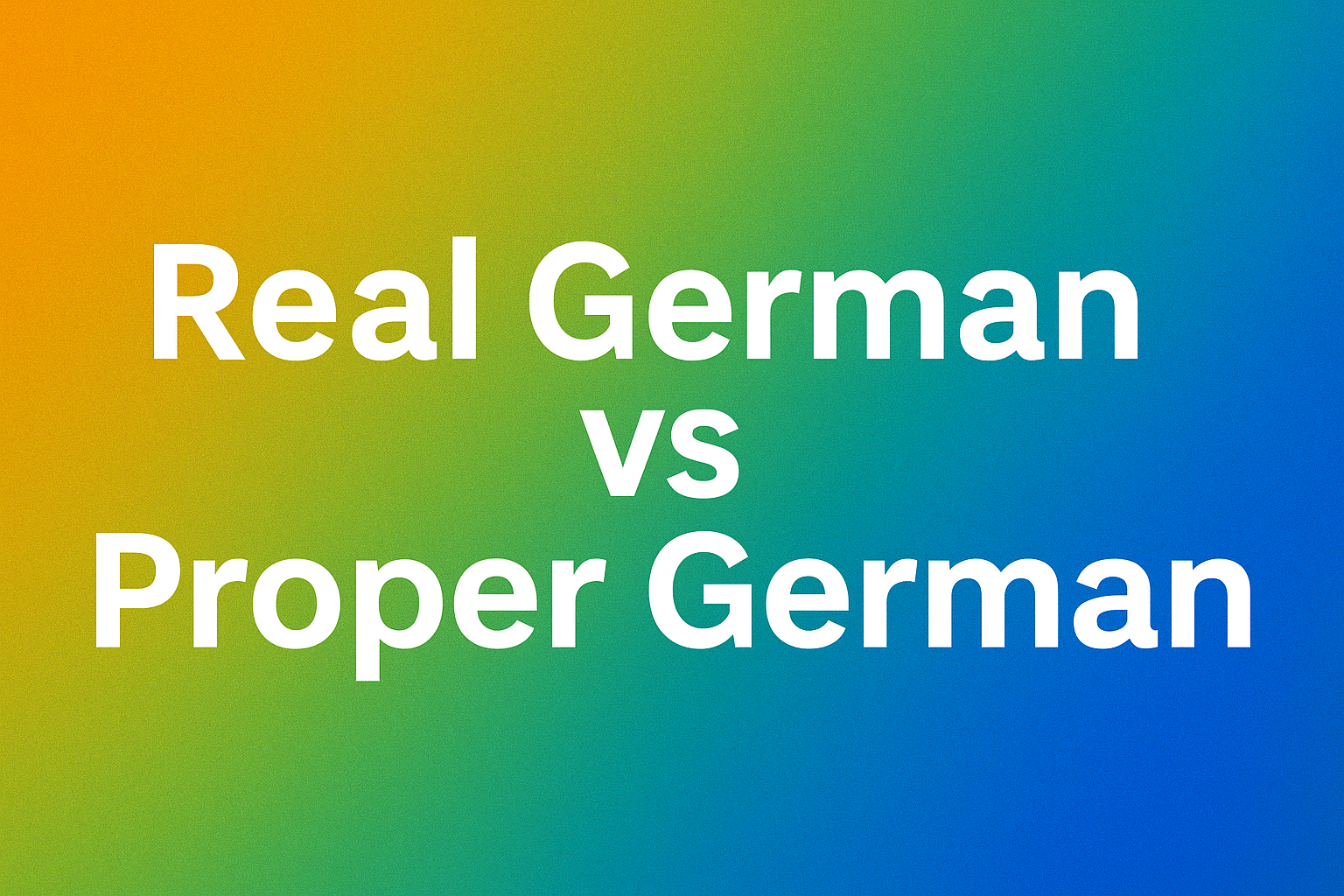Choose your language: 🔗 Choose your language
Many students ask:
“Is this sentence correct?”
“Do Germans really say it this way?”
And the real answer is often:
Yes… but also no.
Because German is not just one language.
It’s a collection of varieties, registers, dialects, and regional habits.
And the idea of “correct” depends on what you’re doing — and where.
🧠 Standard German is not the only German
Let’s be clear:
Standard German (Hochdeutsch) is the form used in:
- schools and universities,
- government and law,
- official documents and exams.
It has fixed rules, accepted structures, and neutral vocabulary.
But it’s not what everybody speaks in everyday life.
In fact, many Germans grow up speaking regional dialects or colloquial forms at home —
and learn Hochdeutsch at school, just like foreign learners.
💬 Real spoken German is full of shortcuts
In conversations, you’ll hear:
- dropped endings:„Hab’s vergessen“ (instead of „Ich habe es vergessen“)
- flexible word order:„Gestern ich war da“ (instead of „Ich war gestern da“)
- filler words, contractions, even English phrases:„Also, I mean, das war echt krass.“
This doesn’t mean the grammar is wrong.
It means spoken German is alive, not frozen in textbooks.
📍 What does “correct” really mean?
“Correct” in German depends on context:
| Situation | What’s Expected |
|---|---|
| University exam | Hochdeutsch, full grammar |
| Job interview | Formal, polite, clear |
| Street chat | Natural, informal, regional OK |
| Talking to Oma | Respectful, adaptable |
| TikTok or text | Creative, shortcut-friendly |
So instead of asking “Is this correct?”,
ask yourself: “Is this appropriate here?”
🔄 Not a Mistake — Just Not the Standard
Sometimes, German learners panic when they hear or say something that breaks the “rules.”
Like:
– “Ich bin gefahren mit dem Bus.”
→ Not the correct word order.
→ But completely understandable.
→ It’s a common beginner mistake — not a disaster.
Or:
– “Dat is gut.”
→ Sounds wrong in standard German.
→ But it’s normal in some dialects (like Plattdeutsch).
→ Not a mistake — just a different system.
At Levitin Language School, we teach Hochdeutsch — the official, standard form of the language.
That’s what you’ll need for:
- school and exams,
- jobs and interviews,
- formal and public situations.
But we also teach you to stay calm when real life doesn’t follow the script.
Because in a real conversation, even if you make a mistake — it’s not the end of the dance.
You just keep going. Like in tango.
Mistakes happen. But if you can be understood, if you can adjust —
that’s already success.
📘 Author’s Column — The Language I Live
Language. Identity. Choice. Meaning.
Tymur Levitin — founder, teacher, and translator
🔗 levitinlanguageschool.com
🔗 languagelearnings.com
© Tymur Levitin














